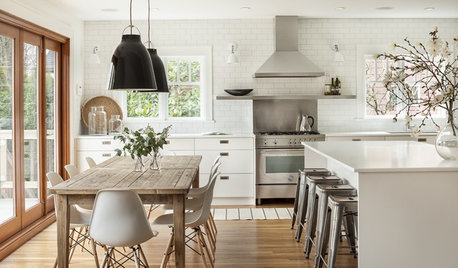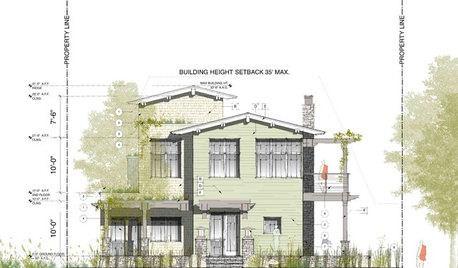Is It Time to End the Mortgage Tax Deduction?
dave_donhoff
13 years ago
Related Stories

REMODELING GUIDESArchitecture Pays Tribute to the Tax Man
Skipping taxes doesn't always mean skipping the country. These architectural features let owners avoid certain taxes without leaving home
Full Story
REMODELING GUIDES6 Must-Know Lessons From a Serial Renovator
Get your remodel right the first time, with this insight from an architect who's been there too many times to count
Full Story
ORGANIZINGProfessional Tips for Organizing Your Clothes Closet
As summer draws to a close, get expert advice on editing and organizing your wardrobe
Full Story
ORGANIZINGWant to Streamline Your Life? Get a System
Reduce stress and free up more time for the things that really matter by establishing specific procedures for everyday tasks
Full Story
MONTHLY HOME CHECKLISTSTo-Dos: Your January Home Checklist
It’s time to lighten up, cozy up and get organized as we head into a new year
Full Story
MOST POPULAROrganizing? Don’t Forget the Essential First Step
Simplify the process of getting your home in order by taking it one step at a time. Here’s how to get on the right path
Full Story
HOUSEKEEPINGTo-Dos: Your March Home Checklist
It’s time to rid yourself of winter’s heaviness and set up for spring
Full Story
ARCHITECTUREThink Like an Architect: How to Pass a Design Review
Up the chances a review board will approve your design with these time-tested strategies from an architect
Full Story
SMALL SPACESLife Lessons From 10 Years of Living in 84 Square Feet
Dee Williams was looking for a richer life. She found it by moving into a very tiny house
Full Story
LIFECould You Be a Landlord?
Sure, the extra income would be great. But jumping blindly into owning a rental property could be disastrous. Here's what you need to know
Full StoryMore Discussions








Billl
OttawaGardener
Related Professionals
Henderson Architects & Building Designers · Riverside Architects & Building Designers · Aberdeen General Contractors · Arlington General Contractors · Avon Lake General Contractors · Browns Mills General Contractors · Champaign General Contractors · Columbus General Contractors · Groveton General Contractors · Mountlake Terrace General Contractors · Muskogee General Contractors · Valley Stream General Contractors · Westmont General Contractors · Westminster Home Stagers · Birmingham Interior Designers & Decoratorsterezosa / terriks
OttawaGardener
david_cary
brickeyee
logic
Billl
chris8796
brickeyee
Billl
dave_donhoffOriginal Author
david_cary
OttawaGardener
david_cary
brickeyee
OttawaGardener
Billl
brickeyee
Billl
david_cary
brickeyee
brickeyee
Billl
azmom
brickeyee
Billl
brickeyee
david_cary
ncrealestateguy
hsb250
brickeyee
Billl
brickeyee
bushleague